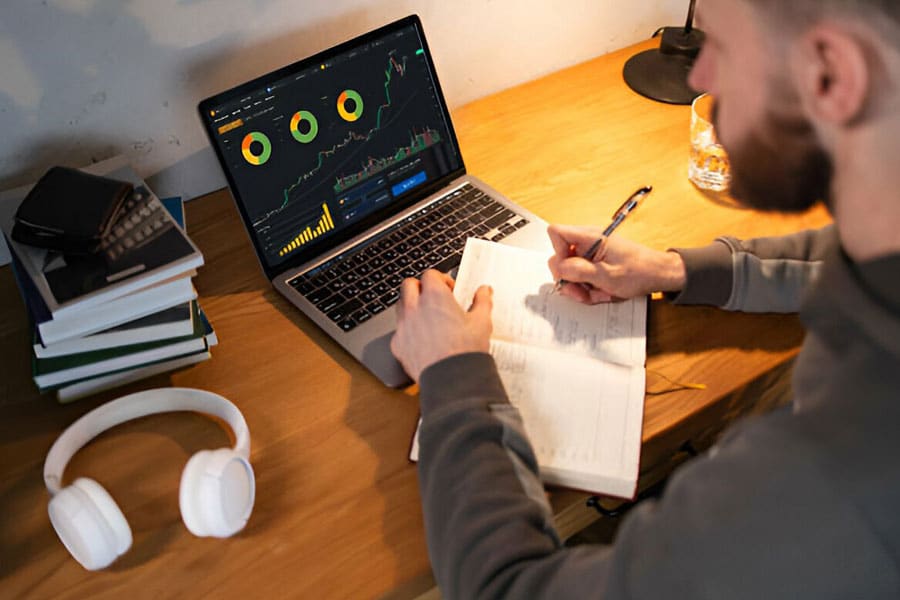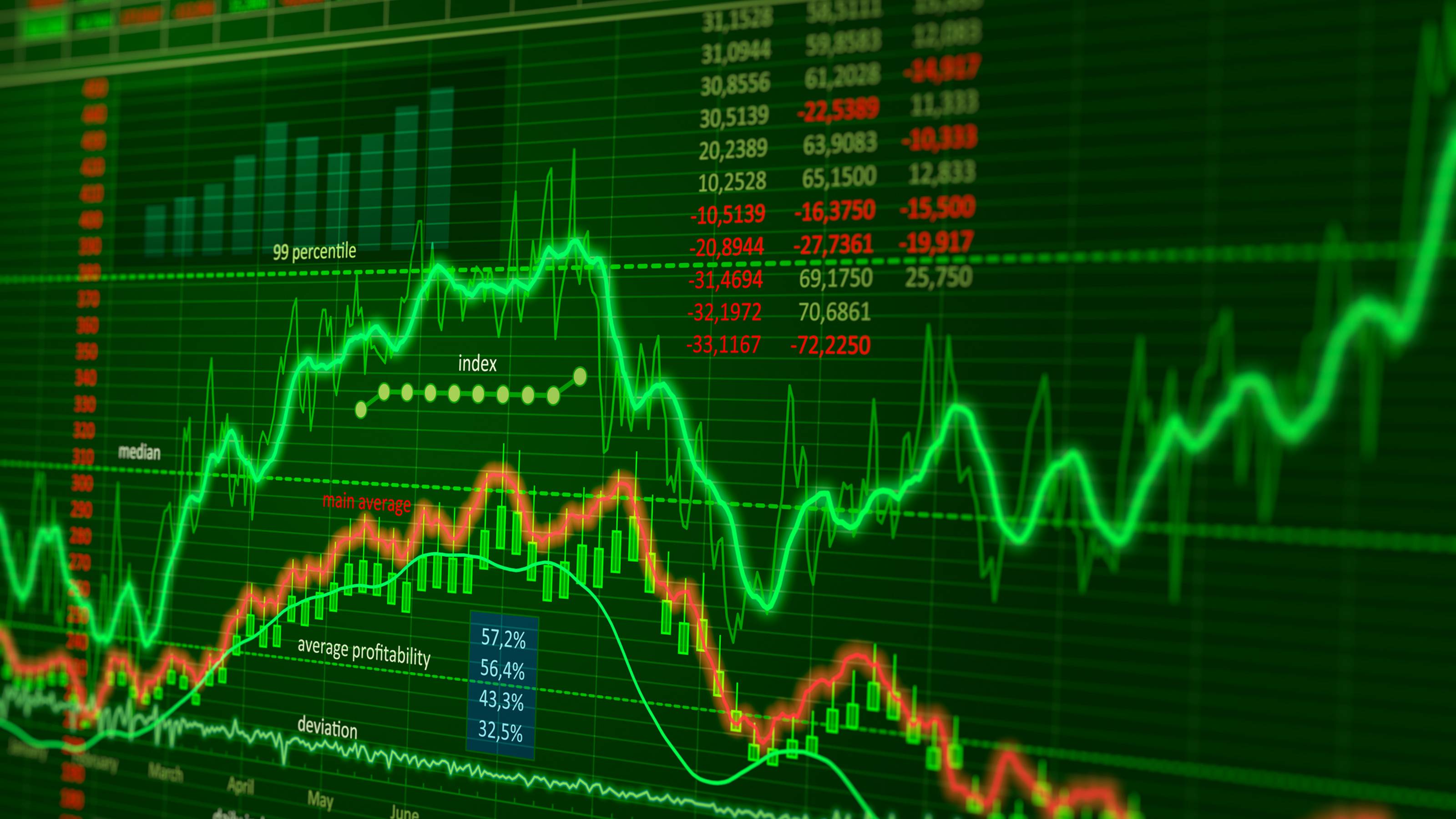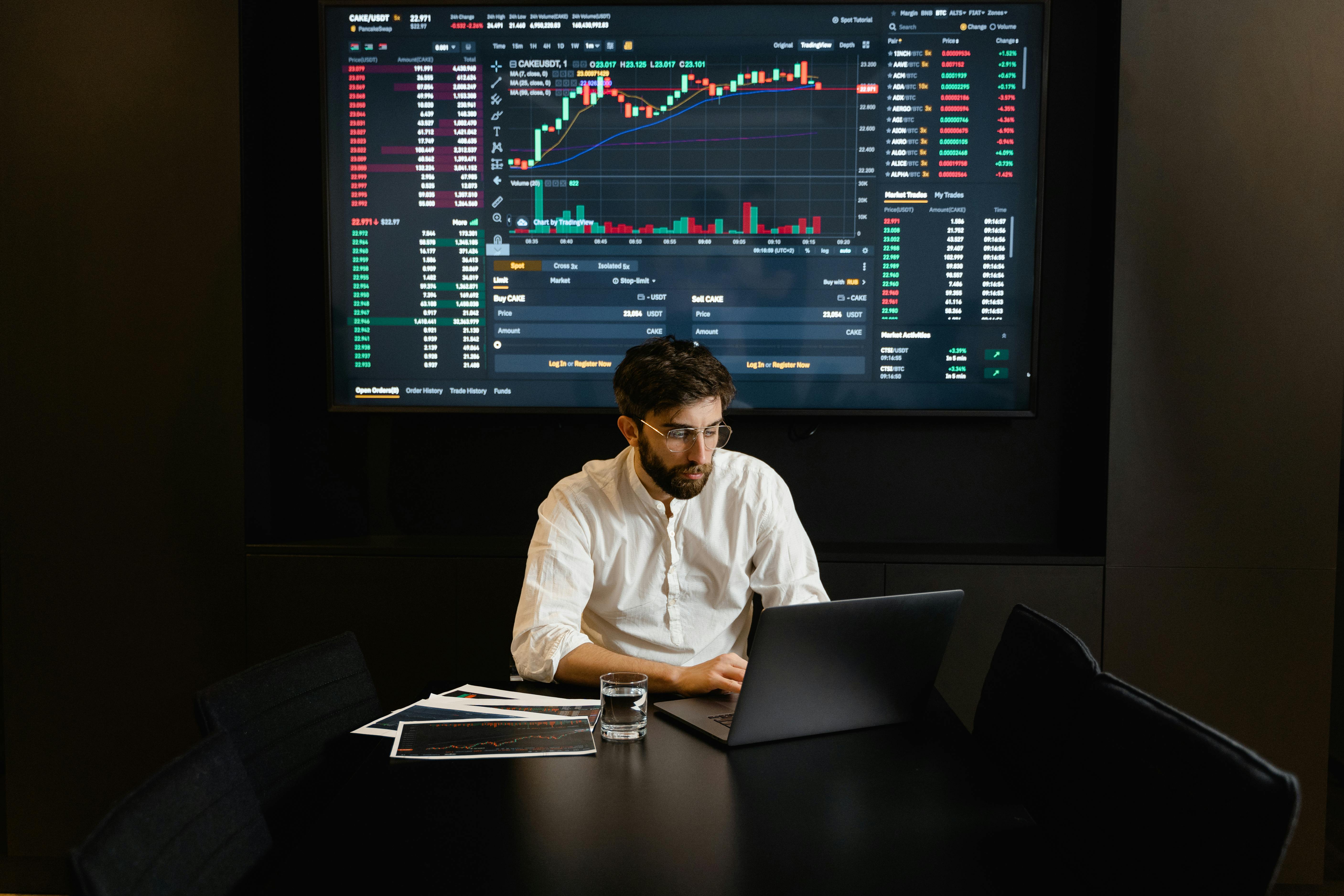Stocks vs. Futures Trading
Compare stocks vs. futures to understand key differences in risk, strategy, and market access, ideal for new and active traders alike.

The stock market captures the most attention, but futures contracts are often the better choice for traders who want to make short-term profits. Comparing stocks vs futures contracts is like looking at apples and oranges. The two feature different structures, benefits, and drawbacks.
If you're considering trading futures, it helps to understand how they differ from stocks before jumping into the market. In this guide, we’ll break down the key differences between stocks and futures, including pros and cons, to help you confidently choose the best trading approach for your goals.
AquaFutures' funded accounts for futures trading can help you achieve your trading objectives with ease. Our funded accounts for futures trading allow you to practice trading futures with little to no risk. You'll get a chance to learn about and develop skills for trading futures without risking your capital.
What are Stocks?

Stocks represent units of ownership in a company. When you buy a stock, you buy a small piece of that company. The amount you own depends on how many total shares the company has issued. For instance, owning 1,000 shares in a company that has 1 million shares outstanding means you have a 0.1% stake in that business. Holding stocks gives you specific rights. These often include voting on key company decisions and attending annual meetings where important policies and board members are discussed or elected. Your shares symbolize a claim on the company’s assets and future profits.
Profits can benefit shareholders in two main ways, including through an increase in the stock price and through dividends. Dividends are payments some companies distribute regularly from their earnings, rewarding shareholders with a direct share of the profits. Stocks are generally categorized into common and preferred types. Common stocks typically provide voting rights and variable dividends, while preferred stocks usually come without voting privileges but with fixed dividends and higher priority in payout if the company liquidates.
Investing in stocks allows individuals to participate in the company's growth and financial success. However, stock prices can fluctuate widely based on company performance, market conditions, and broader economic factors. Stocks are bought and sold primarily on stock exchanges, such as the New York Stock Exchange (NYSE) or NASDAQ. Prices fluctuate based on supply and demand, driven by factors like company performance, economic conditions, and investor sentiment.
Related Reading
- How To Trade Futures Successfully
- What Are Futures In Trading
- What Is The Best Futures Trading Platform
- How Many Futures Trading Days In A Year
- What Is A Point In Futures Trading
- How Much Can You Make Trading Futures
- Can You Trade Futures On TradingView
- How Much To Trade Futures
- When Is The Best Time To Trade Futures
- How Are Futures Similar To Options How Are They Different
- How Is Futures Trading Taxed
- Beginning Futures
- What Time Does Futures Market Open
- Automated Futures Trading
What are Futures?

Futures are financial contracts that obligate the buyer to purchase, or the seller to sell, a specific asset at a predetermined price on a set future date or within a specified month. These contracts are standardized, meaning they detail exact quantities and qualities of the underlying asset, pricing units, minimum price movements (called tick sizes), and delivery terms, including date and location. Standardization facilitates trading on futures exchanges and helps maintain liquidity.
The underlying assets in futures contracts can vary widely, encompassing commodities like crude oil, gold, corn, soybeans, and currencies. Additionally, futures can be based on financial instruments and indices such as stock market indexes (e.g., S&P 500) or interest rates (e.g., 10-year U.S. Treasuries). While the contract terms allow for physical delivery of the asset, the majority of futures contracts are rarely held until delivery; instead, traders offset their positions beforehand to avoid actual receipt or delivery.
Trading in futures carries significant risk due to leverage and price volatility, making it unsuitable for all investors without a proper understanding. Futures are often used for hedging risks, speculation, or arbitrage by traders, institutions, and market participants who want to lock in prices or take advantage of price movements in the future.
Additional key points about futures contracts include their role as derivatives, meaning their value derives from the underlying asset's price. They are standardized and traded on regulated exchanges, which adds transparency and reduces counterparty risk. Futures markets provide price discovery and liquidity for many commodities and financial instruments.
Many futures traders do not have large amounts of personal capital or do not wish to expose their funds to full risk. For such traders, proprietary trading firms offer an appealing option. Firms like AquaFutures provide futures accounts, enabling traders to access sizable capital, up to several million dollars, without risking personal funds.
Unlock up to 50% off Your First Funded Account for Futures Trading.
AquaFutures gives traders fast, affordable access to funded futures accounts. With instant options, simple rules, and real payouts, traders can skip evaluations and unlock greater capital through performance-based scaling. Our programs are designed to reward consistency without unnecessary restrictions.
Join thousands of traders who trust AquaFutures for transparent rules, fast support, and real capital. Ready to take the next step in your trading journey? Explore our account options and get funded today. Unlock up to 50% off your first funded account, plus surprise BOGO deals and bonuses updated weekly.
Stocks vs. Futures Trading

1. Trading Venues
Stocks are usually bought and sold on organized exchanges such as the New York Stock Exchange or the Nasdaq.
Futures can be traded both on organized exchanges and, in some cases, over-the-counter. This flexibility allows futures traders more access to various markets.
2. Nature of Ownership vs. Obligation
Buying a stock means you own a portion of a corporation. Shareholders have potential voting rights and might receive dividends if the company distributes profits.
Entering a futures contract means you are agreeing to buy or sell an asset on a future date at a price determined today. There is no ownership in the underlying asset until the contract is settled.
3. Issuer and Quantity
Corporations issue stocks, and the corporation’s charter determines the total number available.
Futures exchanges write futures contracts. There’s no set limit on how many can exist, but exchanges may set position limits on specific agreements, especially those involving indexes.
4. Cash Flows and Margin
Futures accounts are marked to market daily, meaning gains and losses are credited or debited each day. Traders must maintain a performance bond, often just a percentage of the contract's total value, and may be required to meet additional margin calls if prices move against them.
Stocks usually require buyers to pay the full price of shares (unless buying on margin, in which case additional funds might be needed if the stock price drops). Stockholders may receive dividends as a form of cash flow.
5. Ability to Sell Short
Futures allow traders to sell short just as easily as buy long, with no restrictions regarding price movement direction.
Short selling stocks can be done, but only under certain conditions. For example, short sales are generally allowed only after a price uptick.
6. Time Horizon
Futures contracts have fixed expiration dates and are typically short-term instruments, usually lasting less than a year.
Stocks are considered long-term holdings because, as long as a company exists, shares do not expire.
7. Monitoring and Expiration
Futures traders must stay aware of contract expiration dates and last trading times to manage risk and avoid unwanted delivery obligations.
Stocks do not expire; however, investors should monitor corporate actions such as dividends or stock splits.
8. Risk and Potential Loss
With futures, because of daily price movements and margin requirements, it’s possible to lose more than your initial investment.
With stocks, if purchased outright and not on margin, the maximum loss is limited to your total investment.
Stocks
- Trading Venue: Organized exchanges
- Represents: Ownership in a corporation
- Issued by: Corporation
- Quantity Limit: Set by the company charter
- Cash Flows: Dividends possible
- Margin/Performance Bond: May require a margin for leverage
- Sell Short: Permitted with restrictions
- Time Frame: Typically long-term/perpetual
- Monitoring: Monitor company events
- Risk: Loss is limited to the investment if not on margin
Futures
- Trading Venue: Organized exchanges or over-the-counter
- Represents: Obligation to buy/sell in the future
- Issued by: Futures exchange
- Quantity Limit: No fixed limit, but position limits may apply
- Cash Flows: Daily marking to market gains/losses
- Margin/Performance Bond: Requires a performance bond and margin calls
- Sell Short: Easily done without restrictions
- Time Frame: Fixed expiration, usually less than a year
- Monitoring: Must track contract expiration and last trade day
- Risk: Potential loss exceeds initial margin
Unlock up to 50% off Your First Funded Account for Futures trading.
AquaFutures gives traders fast, affordable access to funded futures accounts. With instant options, simple rules, and real payouts, traders can skip evaluations and unlock greater capital through performance-based scaling. Our programs are designed to reward consistency without unnecessary restrictions.
Join thousands of traders who trust AquaFutures for transparent rules, fast support, and real capital. Ready to take the next step in your trading journey? Explore our account options and get funded today. Unlock up to 50% off your first funded account—plus surprise BOGO deals and bonuses updated weekly.
Related Reading
- Futures Trading Example
- Futures Trading Algorithms
- Futures Backtesting
- How To Buy Copper Futures
- Practice Futures Trading
- Futures Swing Trading
- Futures Prop Firms
- Automated Futures Trading Strategies
- Most Volatile Futures
Pros and Cons of Trading Futures vs. Stocks

The Pros of Futures Trading
Futures trading offers access to key global commodities and currencies, providing opportunities to diversify or hedge investment portfolios. Traders can speculate on price movements of assets like oil, gold, and currencies, often with greater leverage than stocks. This high leverage allows controlling prominent positions with a relatively small capital outlay, enhancing potential gains.
Additionally, futures markets offer longer trading hours (often 24/5), increased liquidity, and ease of short selling, allowing more flexible trading strategies and quicker response to market changes. Futures can also serve as tools for hedging risks, such as partially offsetting losses in correlated stock holdings by taking opposing futures positions.
The Cons of Futures Trading
Futures trading involves high complexity and significant risk due to leverage. While leverage magnifies profits, it equally amplifies losses, potentially exceeding the initial investment and triggering margin calls that require immediate additional capital to maintain positions. Ignoring margin requirements can lead to forced liquidation at a loss. Futures also have fixed expiration dates, meaning contracts lose value as expiry approaches and traders must actively roll contracts forward to maintain positions.
The risk of sudden volatility in the market, driven by geopolitical events or natural disasters, can cause rapid price swings. Furthermore, failure to close or roll positions can result in physical delivery obligations of the underlying asset, which many traders are unprepared for. The high complexity of futures trading demands a solid understanding of market mechanics, contract specifications, and constant position monitoring.
The Pros of Stock Trading
Stocks represent ownership in a company and typically provide dividends and opportunities for long-term growth. Compared to futures, stock trading tends to be less complex, making it more accessible for investors. Stocks have lower leverage, which reduces the risk of losing more than the invested capital.
Stock markets generally have well-established regulatory oversight and investor protections. Investors benefit from simpler tax treatment and the ability to hold positions indefinitely, without expiration concerns. Stocks also allow for gradual wealth accumulation through steady price appreciation and dividend payouts.
The Cons of Stock Trading
Stock trading often involves lower leverage, which can limit the size of potential gains relative to futures. Stock markets trade during limited hours, which restricts reaction time to news outside market hours. While margin trading is available in stocks, it generally involves less leverage than futures, but margin calls can still occur.
Stocks may be less suitable for short-term speculative strategies due to relatively slower price movements and lower liquidity for some stocks. Additionally, stocks lack the 24/5 trading flexibility and easy short-selling abilities inherent in futures markets.
Unlock up to 50% off Your First Funded Account for Futures Trading./

AquaFutures gives traders fast, affordable access to funded futures accounts. With instant options, simple rules, and real payouts, traders can skip evaluations and unlock greater capital through performance-based scaling. Our programs are designed to reward consistency without unnecessary restrictions.
Join thousands of traders who trust AquaFutures for transparent rules, fast support, and real capital. Ready to take the next step in your trading journey? Explore our account options and get funded today. Unlock up to 50% off your first funded account—plus surprise BOGO deals and bonuses updated weekly.
Related Reading
- Where To Trade Futures
- How To Trade In Currency Futures
- How To Trade Futures With A Small Account
- Best Futures To Trade At Night
- Best Futures Prop Firms
- Best Automated Futures Trading System
- Futures Trading Tools
- Futures Swing Trading Prop Firm
- Best Brokers For Futures Trading
.png)





